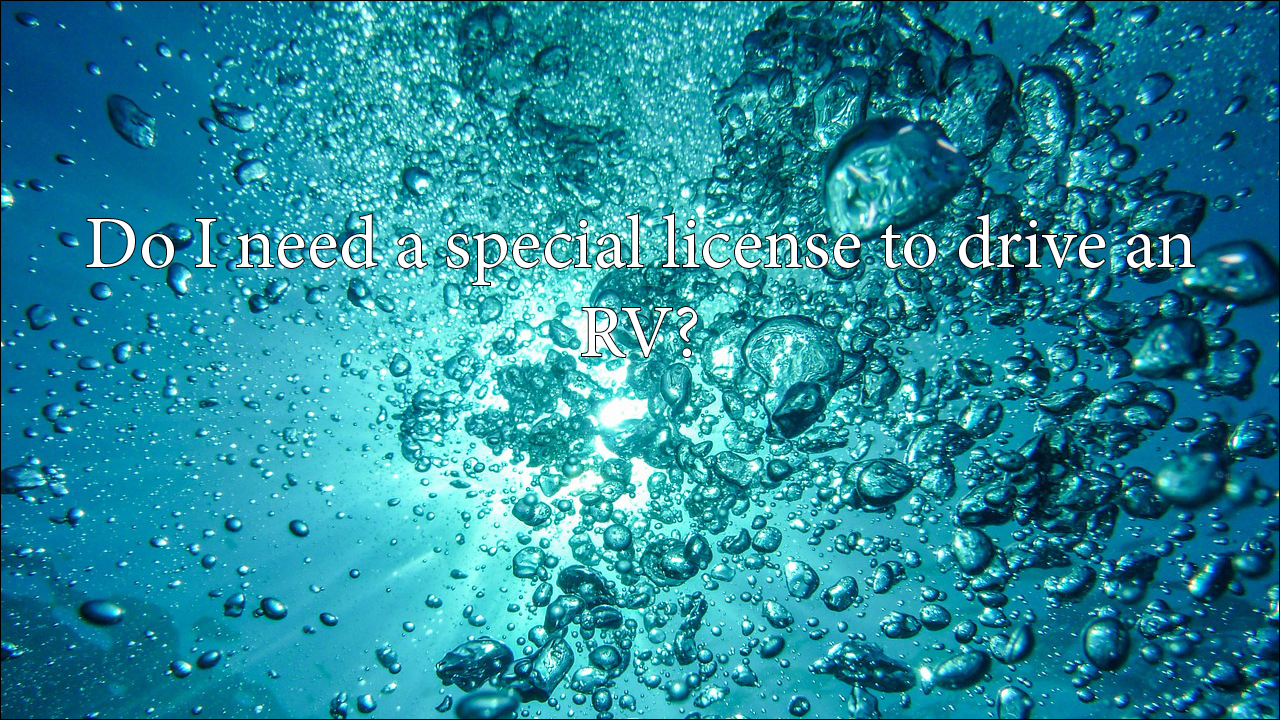The allure of hitting the open road and embarking on an adventure in a recreational vehicle (RV) is hard to resist. These nomadic homes on wheels provide the freedom to explore the great outdoors while enjoying the comfort of a well-appointed home. However, the question often arises: do you need a special license to drive an RV? The answer is not as straightforward as one might think, as it largely depends on the type and size of the RV you plan to drive.
In this comprehensive guide, we will delve into the intricacies of RV licensing requirements. We’ll explore frequently asked questions (FAQs) to help you navigate the various regulations, ensuring you have the proper credentials for a safe and legal RV adventure.
The first step in understanding whether you need a special license to drive an RV is to determine the type of RV you plan to operate. RVs come in various shapes and sizes, and licensing requirements can vary accordingly. Common types of RVs include:
Licensing requirements for operating RVs are regulated at the state level in the United States. While there is no federal mandate for RV-specific licenses, each state has its own regulations. Licensing classes and requirements can be broadly categorized into two groups:
Many RVs, including smaller Class B and Class C motorhomes, can typically be operated with a standard driver’s license. In most states, a standard driver’s license (often a Class D or Class E license) is sufficient as long as the RV does not exceed certain weight or length limits. These limits can vary widely, but they often fall within the range of 26,000 to 30,000 pounds and 45 to 55 feet in length. However, always check your state’s specific regulations, as there may be exceptions.
For larger Class A motorhomes or situations where the RV exceeds state-specific weight or length limits, a Commercial Driver’s License (CDL) may be required. CDLs are typically intended for individuals operating commercial vehicles, but in some states, a Class A motorhome may fall under this category due to its size and weight. CDL requirements often involve additional testing, including written exams and skills assessments.

A: Generally, no, as long as the total weight of the tow vehicle and the travel trailer falls within the limits allowed by your standard driver’s license. However, it’s essential to verify your state’s specific regulations, as weight limits may vary.
A: Age requirements for a CDL may vary by state. In most cases, you need to be at least 18 or 21 years old to obtain a CDL. Check with your state’s Department of Motor Vehicles for precise age requirements.
A: In many cases, your out-of-state license is valid for driving an RV in another state, but it’s essential to check the specific regulations of the state you plan to visit. Some states may have reciprocity agreements, while others may have unique requirements for out-of-state RV operators.
The need for a special license to drive an RV hinges on the type and size of the vehicle, as well as state-specific regulations. Always consult your state’s Department of Motor Vehicles or equivalent agency to ensure that you meet the necessary licensing requirements. Whether you’re driving a compact Class B motorhome or a massive Class A luxury RV, being properly licensed is not only a matter of legal compliance but also a crucial step toward a safe and enjoyable RV adventure.
So, before you embark on your dream RV journey, make sure you have the appropriate license, and remember to prioritize safety and adherence to local laws and regulations.
Thanks for reading “Do I Need a Special License to Drive an RV?” For the best RV parks and campgrounds, visit our website at Simple Simon Travel.